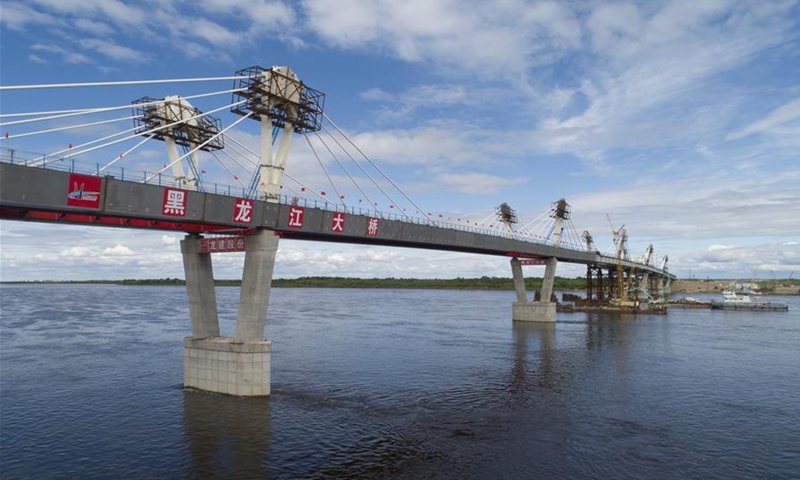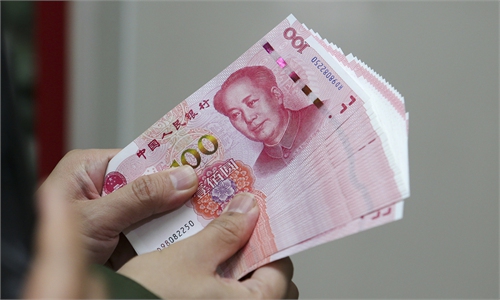Heihe lockdown hinders trade, but has little impact on China-Russia commerce: experts
Little impact on China-Russia commerce this year, experts say

The Blagoveshchensk-Heihe highway bridge in Heihe, Northeast China's Heilongjiang Province Photo:Xinhua
The city of Heihe in Northeast China's Heilongjiang Province, a major port for China-Russia trade, has been put under lockdown again with customs closed and railways suspended after the city confirmed cases of COVID-19, casting a further shadow on the city.
But experts noted that China-Russia trade is unlikely to take too much of a hit from the shutdown, as China could find substitute import sources, particularly in agricultural products, to replace Australian imports.
The city bordering Russia was put under a citywide lockdown starting on Thursday after discovery of confirmed coronavirus cases on Wednesday and Thursday, with all of the city's units suspending operation except for those departments essential to residents' daily lives.
Traffic was also restricted as a part of the lockdown. An employee at the Heihe customs said Wednesday was the last day that goods were allowed to enter Heihe through customs. The latest imported were machinery products.
"As the Heilong River enters the winter closure period, the Heihe customs closure time might be earlier and last longer than last year," he told the Global Times.
The Heihe customs had resumed freight handling in recent months since a coronavirus-triggered lockdown in 2020. Passenger transport had not yet restarted, the person said. Before 2020, Heihe customs had never been completely shut down.
The closure has added some pressure to the city's economy, a large part of which relies on trade with Russia. In 2020, Heihe's GDP grew by 3.5 percent, compared with 6 percent growth in 2019.
Heihe mainly imports agricultural products such as soybeans, chocolate, honey and ice cream, as well as steel and natural gas from Russia, while exports engineering machinery, clothes and electronic products.
A Heihe resident surnamed Zhang, who has been importing food and daily necessities from Russia for many years, told the Global Times that he has a lot of products stuck at Russia' Blagoveshchensk warehouses that cannot be transported into Heihe, which has caused him losses of nearly 1 million yuan ($156,300).
"Despite the reopening of Heihe customs earlier this year, customs is merely open for the government or big companies, while transport of personal goods remains inconvenient, unless you entrust big firms to import the goods on your behalf," the person said.
However, experts said that the disruption of Heihe's trade would have a limited impact on China's overall trade with Russia, as the amount of trade through Heihe customs only accounts for a tiny proportion of overall China-Russia trade.
In 2019, Heihe traded 3.87 billion yuan worth of goods with overseas markets, while China's total trade with Russia amounted to more than $111 billion.
Also, as the Heihe port is about to freeze over, entering the period each year when ships can't move, the closure of Heihe customs wouldn't have too much of a negative impact, said Zhou Rong, a senior researcher at the Chongyang Institute for Financial Studies at Renmin University of China.
According to figures from the Ministry of Commerce, China-Russia trade amounted to $102 billion in the first nine months this year, up 29.2 percent on a yearly basis, the first time that China achieved more than $100 billion worth of trade with Russia in just nine months.
Zhou told the Global Times that China-Russian trade has demonstrated relatively robust growth in the agricultural sector, which has a lot to do with China-Australian disputes that pushed China to replace Australian agricultural goods with Russian products.




